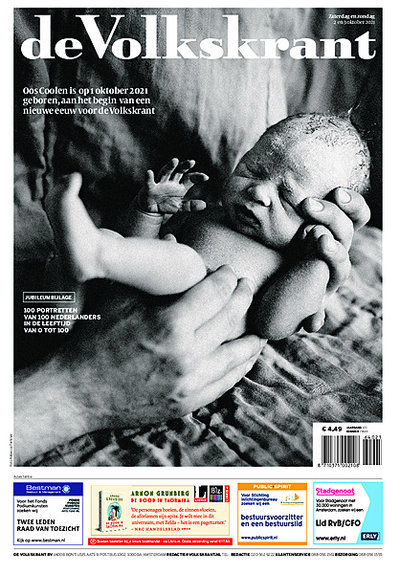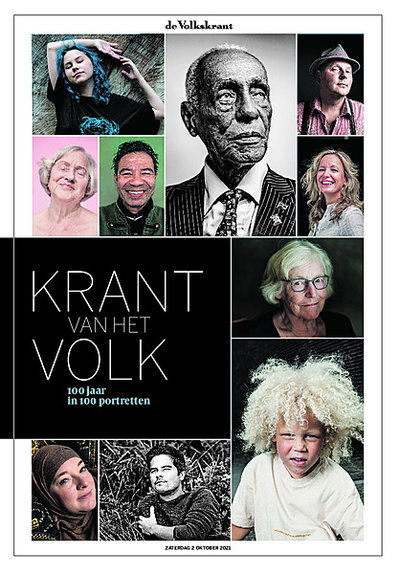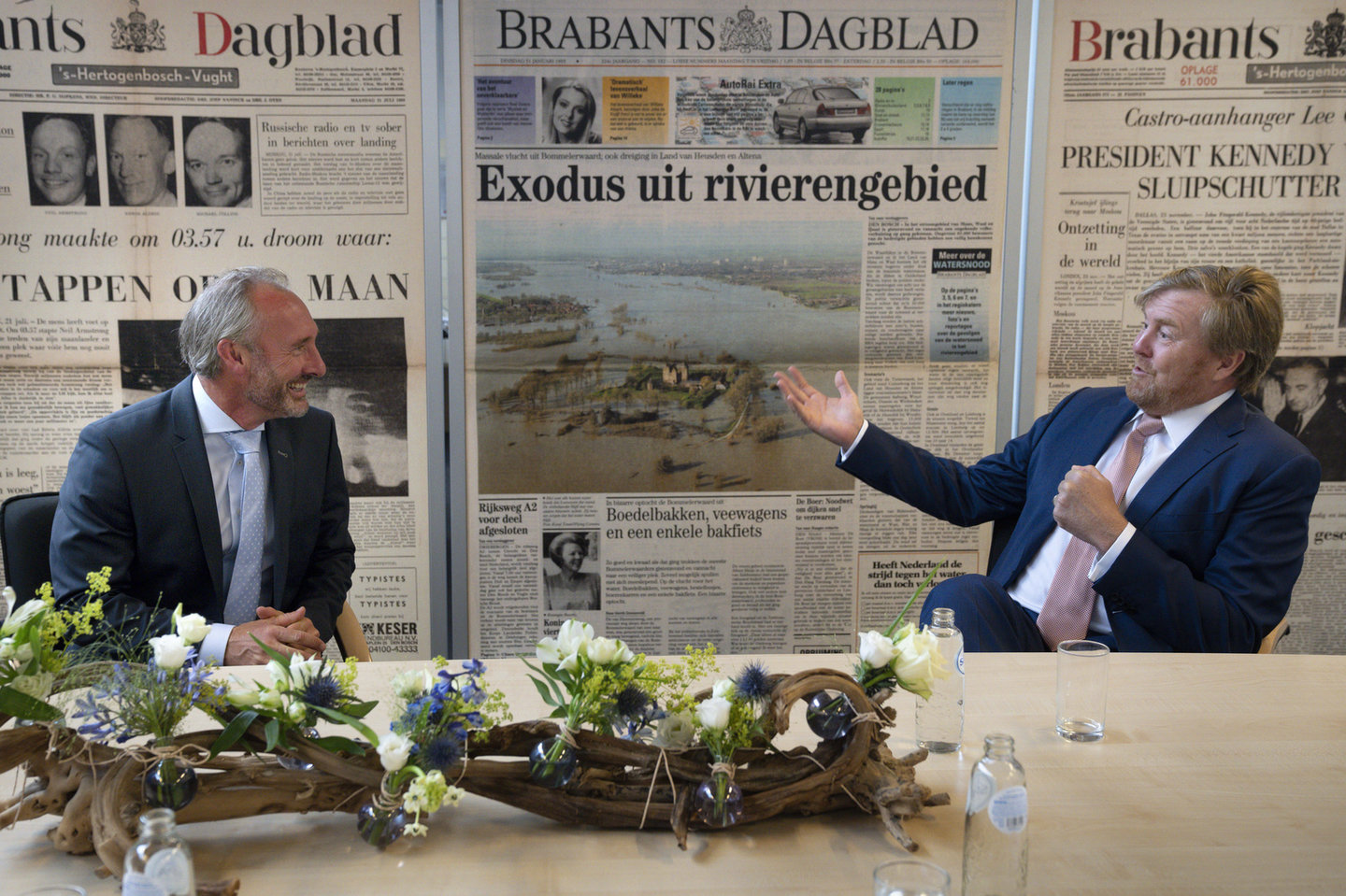News media
A cool head
and a warm heart
De Volkskrant celebrated its centenary in 2021. How do you live to be a hundred? By not blindly chasing after the latest fads, writes editor-in-chief Pieter Klok.

Pieter Klok (49)
editor-in-chiefof de Volkskrant since 2019. He started at thepaper in 2000 and previously served as a financial reporter and deputy editor-in-chief.
On 1 October 1921, a large number of couranten (newspapers) were published in the Netherlands, including De Locomotief, Het Overijsselsch Dagblad, De Maasbode, De Nieuwe Hoornsche Courant, De Standaard, De Opregte Steenwijkse Courant, De Preanger Bode, La Gazette de Hollande, Het Huisgezin, De Tijd, De Banier, Het Vaderland, De Vrije Socialist, Het Nieuwsblad van het Zuiden, Voorwaarts and at least fifty other titles. It was also the day that the first daily edition of de Volkskrant appeared – a relatively obscure newsletter for Catholic workers with a few thousand subscribers. So why has de Volkskrant managed to outlive all but a few of its contemporaries?
First of all, there’s the name: Volkskrant is Dutch for ‘the people’s paper’. With a name like that, it’s almost impossible to go under, because as long as there’s a people, there will be a Volkskrant.
There’s also a long list of illustrious former editors-in-chief. Perhaps the most important of these was Joop Lücker, who managed to rapidly transform the humble Catholic newsletter into a mass medium after World War II.
Over the years, de Volkskrant proved to be capable of putting itself in its readers’ shoes while also continuing to learn from its competitors. Now, thanks to digitisation, we’re even better able to understand what our readers want from us. Data experts can measure very precisely which articles are read and which are ignored, while social media allows our editors to track exactly how readers respond to specific pieces.

1921
founded in
5.009.000
Readership

350.000
(print, hybrid and digital)
Total subscriptions
Growth in total number of subscriptions
Darwin
Darwin’s law of natural selection also applies to newspapers: the faster you’re able to adapt to changing conditions, the greater your chance of survival. But a newspaper shouldn’t blindly chase after all the latest fads. An editorial board needs to have a heart, as well as an existential purpose.
Keep your head cool and your heart warm, that’s the motto that informs everything we do. Behind that lies an ambition to contribute to a healthy, harmonious society. If there’s one constant in our paper’s history, it’s that we have always tried to strengthen democracy, by ensuring that the public debate centres around the issues that really matter, informed by reliable data and strong arguments. We also make sure that everyone feels heard, helping to prevent social rifts.
In the paper’s early years, this was mainly done by presenting our readers with whatever opinions were considered to be ‘correct’ at the time. In recent decades, we’ve mostly tried to offer the best possible information so that they can make up their own minds.
Democracy
When the first daily edition of de Volkskrant rolled off the presses, our fledgling democracy – universal suffrage had been introduced in 1919 – was fragile. The paper’s founders were particularly concerned that the Catholic workers would be swayed by communism. Later, the main threat became fascism.
Now democracy is under pressure once again. In the US, in Eastern Europe, but also here in the Netherlands. It’s not for nothing that we’re seeing an unusual interest in the interwar period: once again there’s fear that extremists will seize power. In the face of these threats, de Volkskrant’s mission to protect democracy is no less important than it was in 1921. And it will remain important for centuries to come.

Happy
Birthday!
De Volkskrant marked its centenary in 2021, but other DPG Media titles also had anniversaries to celebrate: the Danish Weekendavisen (50), Algemeen Dagblad (75) and Het Parool (80, founded during wartime in 1941). Brabants Dagblad even celebrated its 250-year existence. To mark the occasion, King Willem-Alexander visited the paper’s newsroom in Den Bosch in July 2021, where he talked to editors and readers. He ended his visit on a hopeful note: “On to the next 250 years!”
Newspapers in 2021
Berlingske: 272 years old (1749)
PZC: 263 years old (1758)
Brabant Dagblad: 250 years old (1771)
de Gelderlander: 173 years old (1848)
Tubantia: 149 years old (1872)
Het Laatste Nieuws: 133 years old (1888)
Eindhovens Dagblad: 110 years old (1911)
B.T.: 105 years old (1916)
de Volkskrant: 100 years old (1921)
Het Parool: 80 years old (1941)
Trouw: 78 years old (1943)
Algemeen Dagblad: 75 years old (1946)
Weekendavisen: 50 years old (1971)
De Morgen: 43 years old (1978)
BN DeStem: 23 years old (1998)*
de Stentor: 18 years old (2003)*
* merged papers